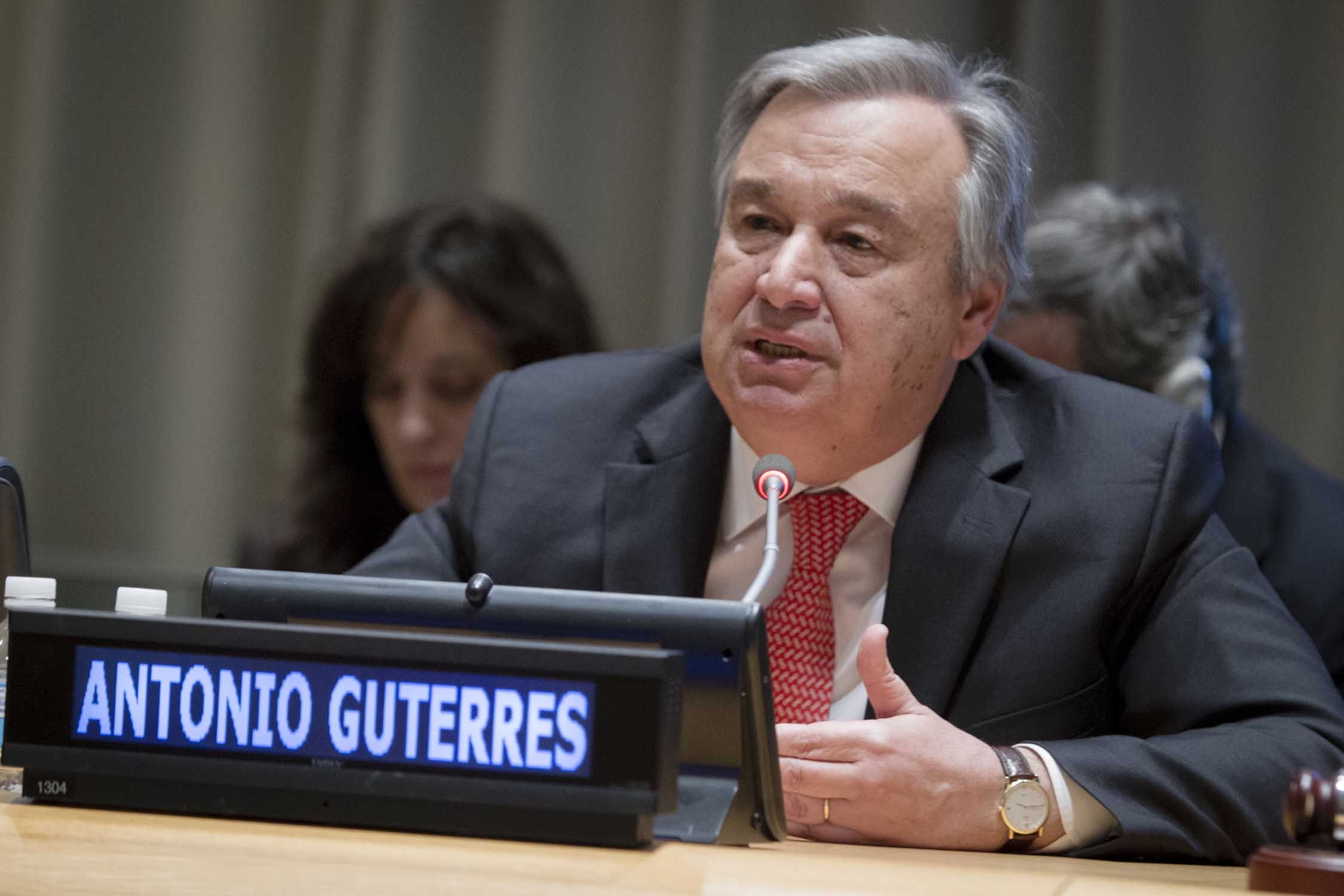Eduardo del Buey
Foto: Notimex
La Jornada Maya
Viernes, 7 de octubre, 2016
On October 5th the United Nations Security Council announced that the majority of its members, including the Permanent Five, had voted in favor of former Portuguese Prime Minister and United Nations High Commissioner for Refugees (UNHCR) Antonio Guterres to be the next Secretary-General of the United Nations. On October 6th the Security Council will formally vote a resolution sending Guterres’ candidacy to the General Assembly, and the General Assembly is expected to ratify his appointment shortly.
As the UN’s refugee chief, Guterres oversaw a system that has been taxed in recent years with refugees from a variety of wars and conflicts. He did so with compassion and with ability, and this undoubtedly sealed the deal with respect to the member states. Throughout his campaign, he vowed to carry on being a spokesman for the least fortunate if he became UN Secretary-General.
On October 5th The Guardian quoted Guterres as saying that “I am totally committed because of what I felt as head of UNHCR for 10 years. You can’t imagine what it is to see levels of suffering that are unimaginable.”
The Guardian went on to say that “The fact that he was promising to be an activist on humanitarian causes also makes Guterres’ victory surprising, as both Russia and China in particular have been resistant to outspoken activists in top UN posts. Also there was widespread sentiment this year that it was time for a woman to run the organization for the first time in its 71-year history and there were several strong female candidates in the contest”.
Fellow candidate Christiana Figueres called the outcome bittersweet, tweeting that “Bitter: not a woman. Sweet: by far the best man in the race. Congrats Antonio Guterres! We are all with you,”
“I think it’s an excellent choice,” Michael Doyle, a former UN Assistant Secretary-General and now a Columbia University professor, told The Guardian. “We have someone who has great political capability, having been prime minister of his country, he is a strong multilateralist, having run the UNCHR at a time of tremendous challenges, and he has ways of communicating with an audience that are inspiring.”
The challenges facing Guterres are difficult indeed.
The world is facing an onslaught of nationalistic fervor unseen since the 1930’s, and right wing demagogues are gaining ground after a generation of leaders determined to make global politics work.
Conflicts exist in all corners of the globe.
The tragedy in Syria has divided global powers sharply. Africa is ablaze with conflicts in the Sudan, South Sudan, Nigeria, the Sahel, and the Democratic Republic of the Congo, to mention a few.
Migration and terrorism pose challenges that often appear beyond our ability to deal with them. Da’esh continues to attack without respite around the world, and Europeans are increasingly frustrated with the millions of refugees flocking to their shores to escape violence and terror.
Iraq and Afghanistan continue to fester, and Pakistan continues to flirt with extremism.
Columbians recently voted against an agreement that would have ended fifty years of armed conflict, and Haiti continues to be a tragedy in the making. Venezuela is unravelling quickly, and Chinese military adventurism is arousing tensions in its maritime back yard.
Guterres will lead an unwieldy and sclerotic bureaucracy much in need of reform from the top down, despite strong pressures from member states to keep their perks and privileges by directly or indirectly imposing staffing and funding decisions.
As former Assistant Secretary-General Anthony Banbury wrote in The New York Times on March 18th, “If you locked a team of evil geniuses in a laboratory, they could not design a bureaucracy so maddeningly complex, requiring so much effort but in the end incapable of delivering the intended result. The system is a black hole into which disappear countless tax dollars and human aspirations, never to be seen again”.
Guterres will have to use his bully pulpit wisely. He has no troops, he has no police, he has no arms, and he’s accountable to 193 member-state governments. He only has his moral authority to try to shape global affairs towards the peaceful solutions of the myriad crises facing humanity.
We wish him well in this difficult task, and hope member states will give him the tools and support to see his mandate through with success.
Our collective hopes for peace and justice rest on this.
We should all let our leaders know what our mandate to them is.
La delegación diplomática llamó a sus connacionales en Riad, Yeda y Dhahran a ponerse a salvo
Reuters / Afp
El cuadro, oculto durante décadas, se exhibirá en el Rijksmuseum desde el miércoles
Ap
El retroceso está concentrado en 23 por ciento de su superficie, señalan científicos
Efe
El acuerdo ocurre en medio de tensiones con EU, cuyo gobierno ha manifestado interés en adquirir el territorio autónomo
Xinhua
